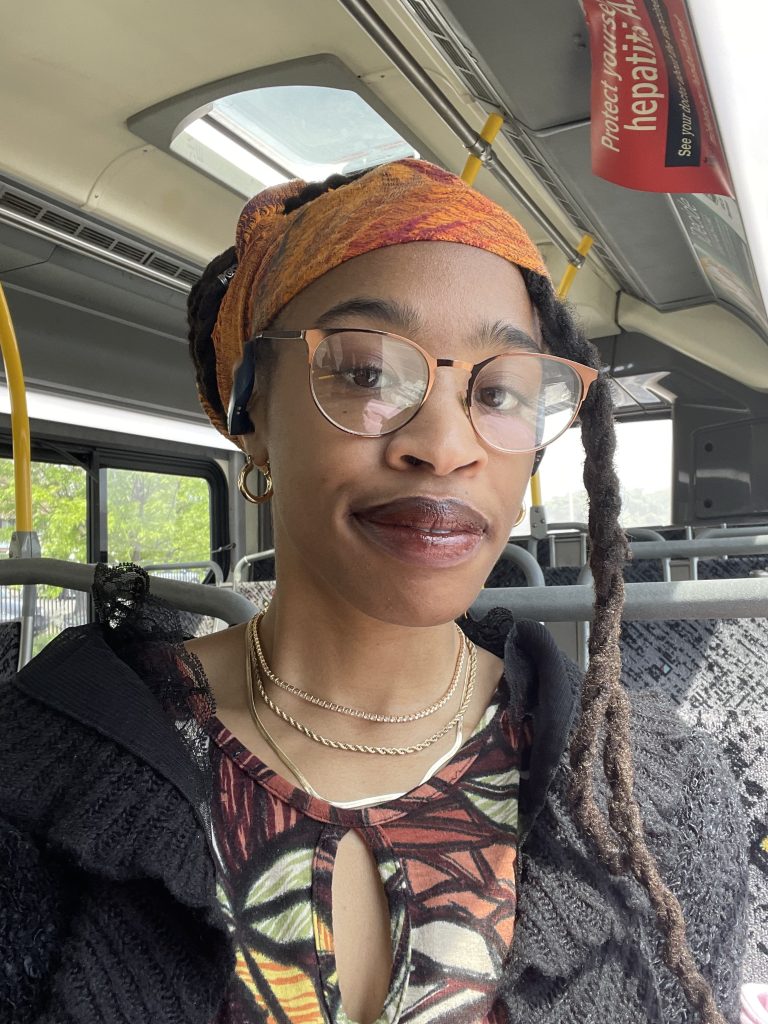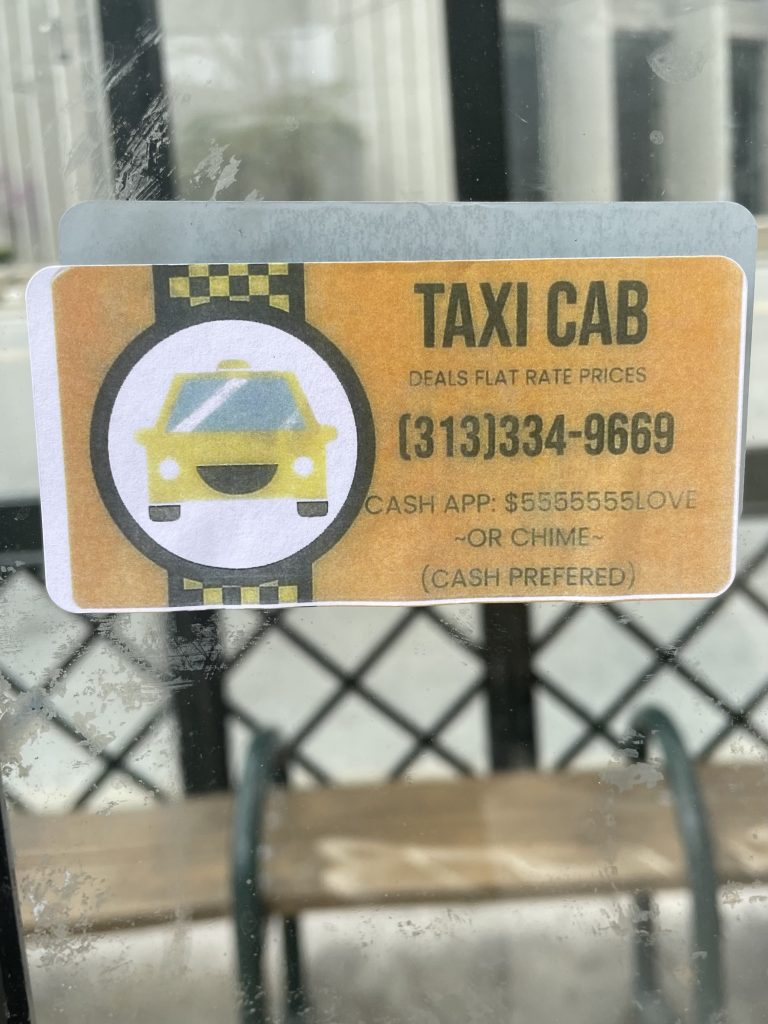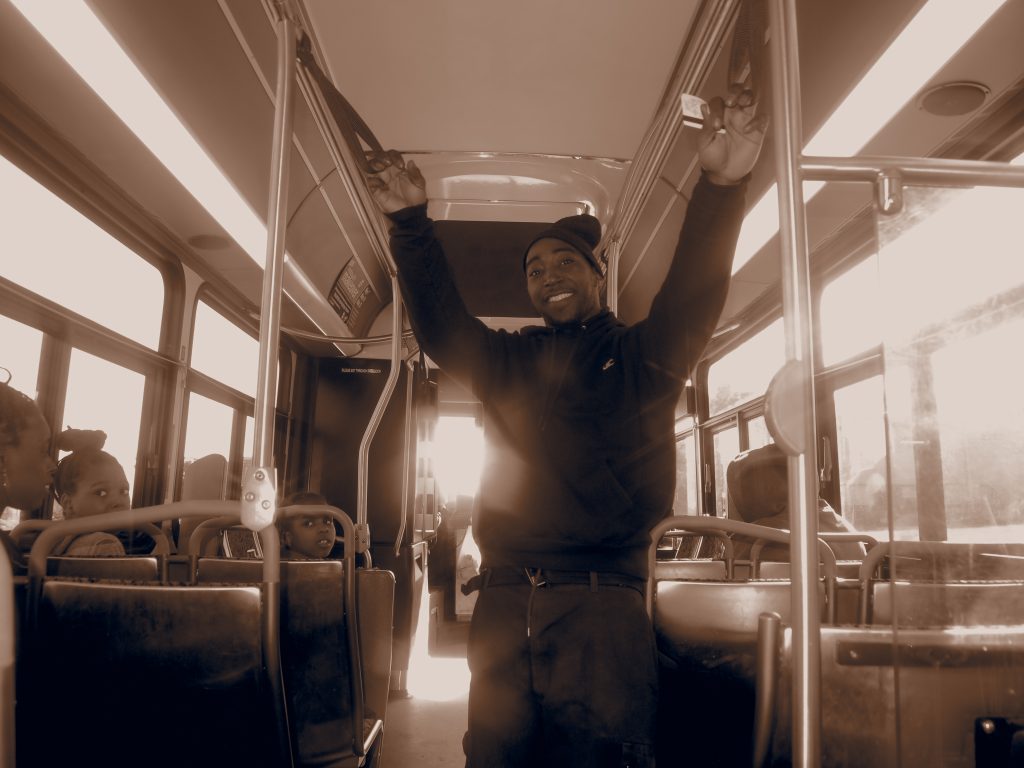
Za’Nyia is TRU’s Transportation Outreach Specialist and MI Healthy Climate Corps Member for 2024, as part of the AmeriCorps program. She has been taking public transit for over a decade. Public transit has been integral to her education, personal development and is something she will always advocate for. Part of her work is gathering Transit Impact Stories, so if you want to share your own transit impact story, please reach out to Za’Nyia at [email protected]!
Waddupdoe!
I started taking the bus solo freshman year of high school. Once I learned the basics of taking the bus, I felt like the entire city was at my fingertips! I loved being able to take the Jefferson or the Woodward bus to Michigan Ave., where I’d get off in Corktown and visit the hip-hop gallery 5e. I would often visit the Detroit Main Library on Woodward Ave. to read for hours surrounded by walls lined with books. But while being able to navigate the city brought me freedom, it also meant I was subjected to the consequences of a failing transit system.
“Once I learned the basics of taking the bus, I felt like the entire city was at my fingertips!”
The Consequences of a Failing Transit System
I remember being in 10th grade and getting second degree frostbite on all ten of my toes during a rough winter, because I walked from Grosse Pointe to the transit center after the Jefferson bus never showed up. I walked along the bus route for three hours and never saw the bus pass by. After waiting a few more hours for the Woodward bus to show with no luck, I figured maybe there was a route change, so I walked around downtown hoping to find the bus at a different stop. Luckily I was able to find the bus, but I was on crutches for a week! I didn’t have a car in high school and I don’t have one now. Unless I get a ride from family or friends my default is public transit.
“In 10th grade, I got frostbite during a rough winter. I walked from Grosse Pointe to the transit center after the Jefferson bus never showed up.”
While I mainly use the bus, I also enjoy taking my little brothers or nieces and nephews on the People Mover. I haven’t used public transit in another city before, but I really look forward to seeing what transit systems with more investment look like in action. Because the impact of a failing public transit system echoes throughout my community. Detroit is a city built for cars, but too many of the city’s residents don’t have the means to sustain a personal vehicle, myself included. I prefer to ride my bike because it’s better for the environment, but if not my bike I take the bus. Riding my bike or taking the bus is also way better for my pockets! I can spend $2 and get anywhere in Detroit or the surrounding suburbs, if I need another transfer that’s still less than $5. If I’m in a rush or the bus doesn’t service where I’m trying to go I’m lucky to live in one of the cities Cunningham (the local taxi man) services! Cunningham is a community-saver, he takes multiple forms of payment and allows you to pay what you can afford.
“Detroit is a city built for cars… I’m lucky to live in a city Cunningham services!”

In school I learned how public transit protects the environment by decreasing the carbon we pollute our lungs and air with. When I choose forms of transit that lessens the number of cars on the road, I can impact how much I pollute our environment in a big way. Transportation is the second highest contributor to climate pollution in Michigan. I’ve seen people develop asthma in real time because they lived near the incinerator or by a freeway. We as Michiganders have a responsibility to rectify car pollution and the impact it has on the communities throughout our state.
An ideal transit system for the region is one that connects the major cities throughout Michigan and accounts for rural areas. Ideal Michigan transit is safe and accommodating of vulnerable populations like: The elderly, school-aged youth, the disabled and working-class communities. That accommodation shouldn’t compromise the buses running frequently, relative to the needs of the communities being served. I should be able to visit my crochet buddy in Lansing without it taking 6 hours and $100 minimum there and back. The ideal transit system has happy workers and smooth service.
Better transit is harder to achieve when current driver pay is atrocious. Although driving public buses can be dangerous, public bus drivers get paid barely $20 an hour. I’m positive the poor quality in pay is a contributor to decreasing bus driver performance. It’s hard to feel appreciated for your work when you need a special license to even qualify to be a driver, just to get paid worse than almost every other position available that requires that special license.
“Legislators should know that being a representative of the people is not an option.”

I’ve been thinking about how to improve public transit. If I could change one thing about the transit system I would improve the communication of the transit department. I understand it takes time to enact systemic change, I’m not expecting the transit system to improve overnight. Until then, it would help to have clear communication between the transit department and the residents regarding changes in routes. There have been so many times where I missed an important event, or unknowingly put my health at risk waiting in the elements because the bus was temporarily rerouted and no public notice was given or made readily accessible.
Legislators and public service departments should know that being a representative of the people is not an option in their line of work. Accurately and justly representing the people they govern is the foundation to which all other decisions must be built upon. If they don’t share the experiences of those they govern, the bare minimum a legislator can do is believe the people. When we share our experiences under the laws and decisions that dictate our lives we need to be heard. Public transit is in dire need of funding. A failing public transit system is a failure for all Michiganders.
